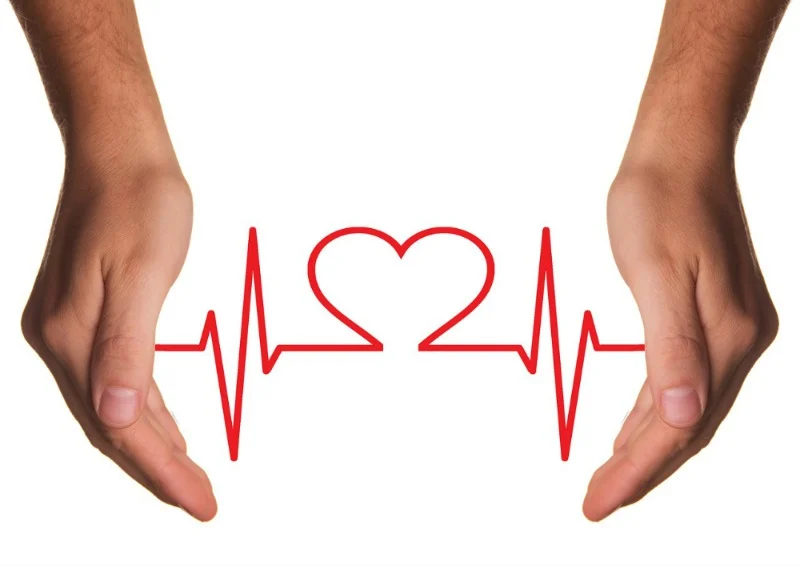This post may contain affiliate links. I only recommend products I use and love. Read the full disclosure here
Last Updated on September 29, 2023 by Alaina
Help Your Doctor To Help You
We are living in strange times, and to illustrate that it’s worth looking at a couple of examples. At present, people have less trust than ever in what they see on the news – but there are more news sources around than ever before. It will often turn out that what people trust less is news sources they disagree with – wherever they fall on the political spectrum.
Secondly, there seems to be an all-time low in the level of trust people have in doctors. This is despite the fact that, as time goes on, we objectively learn more about medicine. That includes doctors. You could afford to have more trust in your doctor today than at any time in the past. But because we know more about the times they get it wrong, trust falls.

The truth is, sometimes doctors will get it wrong. They are human. The body and the mind are highly complex organisms that can have a lot go wrong with them. Sometimes, those issues can be almost identical but for one small factor. It would be impossible for there to not be the occasional error.
That said, we should still trust our doctors. They are in an occupation that is far from the most highly paid. They have gone into serious debt to qualify for their role. They work incredibly long hours in a job that requires them to become close to patients who may well die.
Out of all the occupations in the world, if you’re looking for an easy number that lets you skate by on minimal work, medicine is not it. If you’re concerned that your doctor isn’t doing much for you, flip the question around. Do patients do enough for their doctors?
To explain that question, let’s be more precise. Your doctor will try to make your health issues go away. What they need from you – from any patient – is help in doing so. So how can you help them?

Be Honest
Many patients go to see doctors already knowing what they want the doctor to say. We are, mostly, well enough informed to know the main symptoms of various conditions. So when we walk in there, we are more or less expecting our diagnosis to be rubber-stamped.
Tell your doctor what you think is wrong, by all means, but be clear about why. They will ask you questions, and you need to answer them honestly. Early and accurate diagnosis is the most important weapon in battling an illness. If you embellish one symptom or downplay another, you make a doctor’s job harder.
Remember They’re The Doctor
Let’s say you’ve been experiencing pain in your left side for a period of more than a week. You have, by now, probably cracked and Googled your symptoms. You may have arrived at your own diagnosis. One of your symptoms doesn’t quite fit, but the wording of the search result was vague enough to allow you to diagnose anyway.
It’s true that conventional conditions can behave unconventionally. However, where the pain is in your body means everything for diagnosis as Safe Symptoms explains it here. Let the doctor run through the process for diagnosis. They, too, know that there can be unusual presentations of an illness, and will factor that into their diagnosis.
So, whether it’s a hospital doctor or it’s medical house calls, it’s essential to trust their expertise and allow them to provide a thorough evaluation for accurate and personalized medical care
They will ask you questions and listen to your answers – they have to, most of what they learn about your symptoms has to come from you. But if they disagree with your diagnosis, they’re almost certainly right.

image via Pixabay
Be Polite
Most importantly of all when speaking to a doctor, you need to remember that they spend all day having their knowledge questioned. They did not go through all those years of medical school to be berated by someone who read something online. Yet it happens to them, repeatedly, in the course of a day.
If you are not satisfied with them telling you your symptoms are common and can be mitigated by small changes in lifestyle, phrase it as a question.
“Can you explain to me why this pain continues even when medicated?”
“Is there a chance it’s something more? When should I come back if my symptoms haven’t alleviated?”
In short, you should always make clear that you recognize their expertise, while not ignoring your own instincts. A reasonable doctor will happily answer your questions. They’ll be only too happy to have a dialog. After all, they spend all day hearing “I don’t agree” and “Why aren’t you helping me?”. They’ll be grateful to have a grown-up talk with someone courteous.
